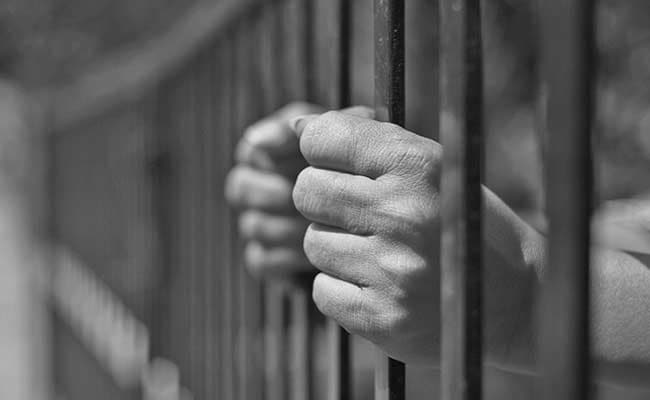
Representational Image.
Seoul:
Amnesty International on Wednesday called on South Korea to release hundreds of young men jailed for refusing mandatory military service, labelling their continued internment a "scandal".
Every able-bodied South Korean male between the ages of 18 and 35 is required to serve two years in the military.
Apart from those with physical disabilities, exemptions are rare and anyone refusing to serve -- for moral or religious reasons -- faces an automatic jail term.
Most prominent among the "refuseniks" are Jehovah's Witnesses, some 12,000 of whom have been jailed over the past six decades.
The main rationale for military service is the threat posed by North Korea, given that the 1950-53 Korean conflict ended with a ceasefire rather than a peace treaty, leaving the two Koreas technically still at war.
In a report titled "Sentenced to Life," Amnesty said the stigma attached to conscientious objectors meant many faced economic and social disadvantages which lasted far beyond the typical 18-month jail term.
"For the South Korean government to condemn innocent young men as criminals is a scandal and a violation of their rights," said Hiroka Shoji, the rights monitor's East Asia Researcher.
"The jailing of conscientious objectors does not make South Korea any safer, it only serves to stigmatize and crush the aspirations of young men who had bright futures," Shoji said.
Once they have completed their two years, men are required to serve in the reserve forces for eight more years, with a maximum of 160 hours of duty per year.
For many the policy of conscription is an unwanted and deeply resented intrusion that interferes with studies or nascent careers and serves no discernible purpose, especially in a rapidly-ageing society where the size of the workforce is dwindling by the year.
The vast majority, however unwillingly, buckle down, knowing that refusal means a criminal record that precludes any future job with the government or a major corporation.
But the Jehovah's witnesses and a few others opt for jail, citing their moral opposition to bearing arms.
Amnesty -- while not calling for an end to conscription -- said the government should provide alternative options.
"The government is failing these young men, their families and society. There are genuine alternatives to military service that the authorities can and must provide," said Shoji.
"These men are prisoners of conscience and must be immediately and unconditionally released."
The South Korean armed forces rely heavily on the military service system, with draftees accounting for the lion's share of its 690,000 active personnel.
The pressures on young conscripts can be damaging, as shown in a series of recent shooting incidents involving suicides and reservists turning their guns on other members of their unit.
After what is often quite a cosseted childhood and teenaged youth, they are suddenly plunged into a world of harsh military discipline.
Military service in South Korea also involves genuine combat duty, often along the border with North Korea which former US President Bill Clinton once described as the "scariest place on earth".
Every able-bodied South Korean male between the ages of 18 and 35 is required to serve two years in the military.
Apart from those with physical disabilities, exemptions are rare and anyone refusing to serve -- for moral or religious reasons -- faces an automatic jail term.
Most prominent among the "refuseniks" are Jehovah's Witnesses, some 12,000 of whom have been jailed over the past six decades.
The main rationale for military service is the threat posed by North Korea, given that the 1950-53 Korean conflict ended with a ceasefire rather than a peace treaty, leaving the two Koreas technically still at war.
In a report titled "Sentenced to Life," Amnesty said the stigma attached to conscientious objectors meant many faced economic and social disadvantages which lasted far beyond the typical 18-month jail term.
"For the South Korean government to condemn innocent young men as criminals is a scandal and a violation of their rights," said Hiroka Shoji, the rights monitor's East Asia Researcher.
"The jailing of conscientious objectors does not make South Korea any safer, it only serves to stigmatize and crush the aspirations of young men who had bright futures," Shoji said.
Once they have completed their two years, men are required to serve in the reserve forces for eight more years, with a maximum of 160 hours of duty per year.
For many the policy of conscription is an unwanted and deeply resented intrusion that interferes with studies or nascent careers and serves no discernible purpose, especially in a rapidly-ageing society where the size of the workforce is dwindling by the year.
The vast majority, however unwillingly, buckle down, knowing that refusal means a criminal record that precludes any future job with the government or a major corporation.
But the Jehovah's witnesses and a few others opt for jail, citing their moral opposition to bearing arms.
Amnesty -- while not calling for an end to conscription -- said the government should provide alternative options.
"The government is failing these young men, their families and society. There are genuine alternatives to military service that the authorities can and must provide," said Shoji.
"These men are prisoners of conscience and must be immediately and unconditionally released."
The South Korean armed forces rely heavily on the military service system, with draftees accounting for the lion's share of its 690,000 active personnel.
The pressures on young conscripts can be damaging, as shown in a series of recent shooting incidents involving suicides and reservists turning their guns on other members of their unit.
After what is often quite a cosseted childhood and teenaged youth, they are suddenly plunged into a world of harsh military discipline.
Military service in South Korea also involves genuine combat duty, often along the border with North Korea which former US President Bill Clinton once described as the "scariest place on earth".
Track Latest News Live on NDTV.com and get news updates from India and around the world

